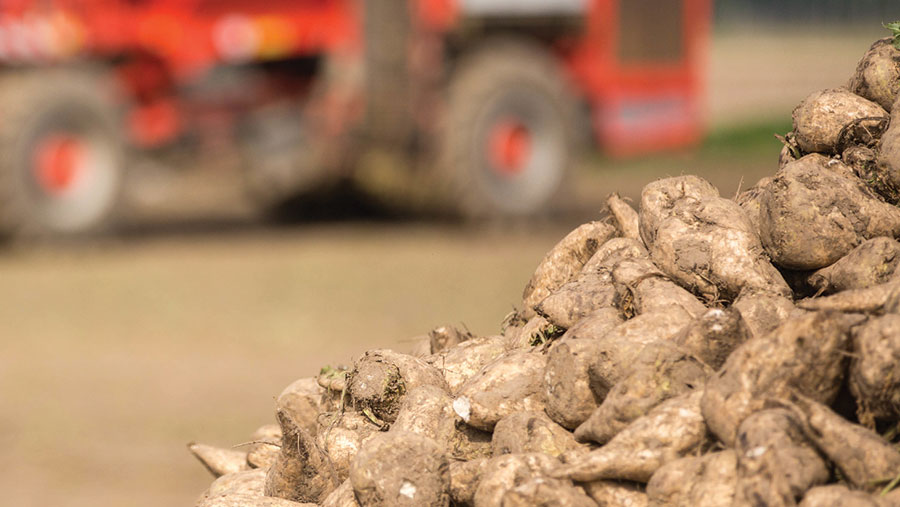Post-quota sugar beet pricing options revealed to farmers
 © Tim Scrivener
© Tim Scrivener Sugar beet growers are being asked to consider at least three pricing options for the crop which would come into effect once quotas end in 2017.
Options include maintaining a fixed price agreed ahead of planting or the introduction of a market derived price link (see “Contracting options”, below).
Growers could also be offered more flexibility in contract lengths, which may allow for better planning.
Beet growers will discuss various pricing formulas during a one-day conference at the East of England showground, Peterborough, on Friday (13 November).
Representatives from NFU Sugar and British Sugar will attend the meeting.
Both sides agree that different basic beet prices could reflect a grower’s appetite for exposure – and potential returns – from the market.
Some growers might choose a predetermined fixed price for all their crop. Others might choose a more risky but potentially more lucrative formula.
Contracting options
- Status quo An annual price negotiation, in advance, with the price for the crop set about nine months before planting. This option would see the NFU and British Sugar negotiate a price agreement in much the same way as happens at present.
- Market-derived price link An opportunity for growers to benefit from changes in the EU or world sugar price or alternative crop prices. Growers could be offered a guaranteed beet price, plus a potential premium if a predetermined threshold is exceeded.
- Contract length Pricing length could vary – from one season as at present to longer term contracts. The theory is that may enable the grower to plan ahead and mitigate risk while managing the impact of market volatility.
NFU Sugar chairman and Cambridgeshire farmer William Martin said: “In 2016, beet growers will be planting their final crop under the current arrangement, so we have to start planning now for what the post-quota world will look like.”
See also: British Sugar cuts beet price for 2016-17
Although quotas will end, NFU Sugar will continue to represent growers in price negotiations with British Sugar.
Mr Martin said: “We want to hear from growers about their views on beet pricing options and their attitude to risk and reward.”
Forecasts suggest an expansion in the EU sugar area when production quotas end on 30 September 2017.
The European market is expected to align with the world market – and be more influenced by world sugar prices, which have fallen to seven-year lows.
Under the current regime, EU-grown sugar for human consumption is limited to 13.5m tonnes, with the UK accounting for just over 1m tonnes of this.
Imports of up to 3.5m tonnes complete EU sugar requirements, with EU exports to the rest of the world restricted to 1.4m tonnes.
When quotas end, the EU will be allowed to produce as much sugar as it wants.
Export restrictions will be lifted, although import rules will be maintained.
The minimum beet price payable to growers of €26.29 (£19.10) will also be abolished, as will the EU reference price of €404/t (£286/t).

